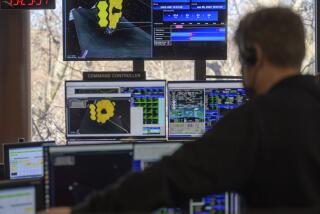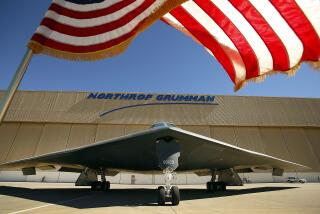Bolstered by New Contracts, Hughes Electronics Stays Put
- Share via
Interesting how time changes even the best-laid plans.
Two years ago, Hughes Electronics shook up northern Orange County when it announced that its Fullerton-based ground systems unit was targeted for near obliteration. A corporate downsizing was supposed to reduce employment at the 350-acre Fullerton campus to about 900 from 6,800.
But the trimming, which mostly involved transferring employees to other facilities, stopped last year with about 2,400 workers still ensconced in Fullerton. A reorganized Hughes kept four units there, including its command and control systems operation. The company landed several contracts and was never able to find a better place for the remaining workers than at their old stomping grounds in Orange County.
In the past year, Hughes has added about 100 jobs in Fullerton and company officials now say they need to hire about 200 more engineers by Christmas to handle a heavier workload, including three contracts for software and hardware systems for the Federal Aviation Administration. The jobs will be added at Fullerton, as well as at facilities in Reston, Va., and Saudi Arabia.
The FAA, which says its technology is like an old car--it gets you there but not as reliably as a new one, and usually with a lot of expensive maintenance and repair along the way--is spending billions to upgrade the nation’s air traffic control system. Hughes’ command and control unit has FAA contracts worth about $200 million now--and potentially worth nearly $1 billion if all the bells and whistles and options are ordered over the next decade.
The biggest of those contracts, worth about $141 million to Hughes, calls for development of a satellite-based global positioning system to automatically locate and track aircraft during flights over the oceans. Currently, an FAA spokesman said, aircraft pilots must periodically radio their positions to FAA tracking stations on land.
More to Read
Inside the business of entertainment
The Wide Shot brings you news, analysis and insights on everything from streaming wars to production — and what it all means for the future.
You may occasionally receive promotional content from the Los Angeles Times.









